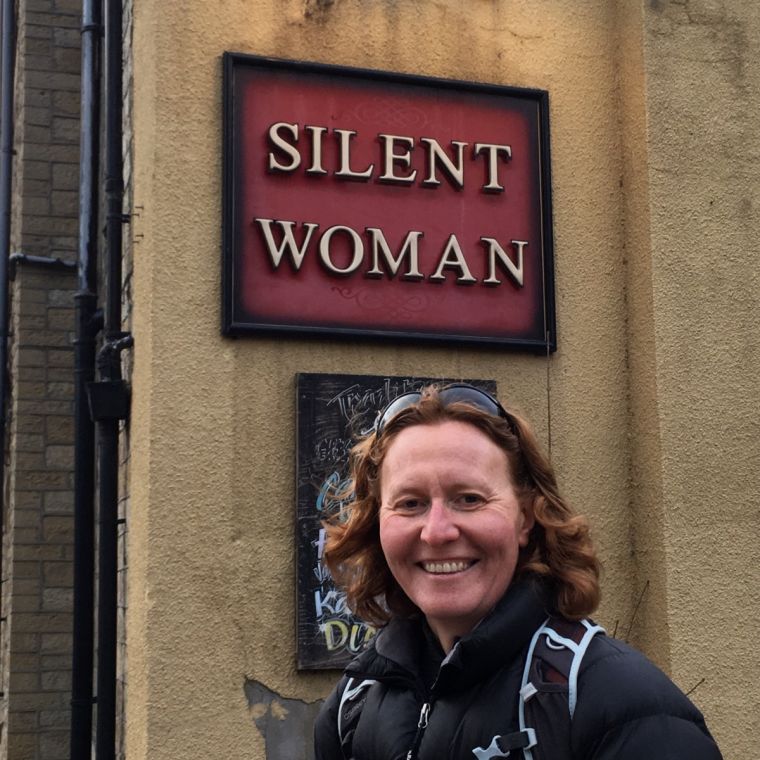Women priests 25 years on: How are we flourishing?
Today marks 25 years since women were first ordained to priesthood in the Church of England. Much has been made of the commitment to mutual flourishing for those who theologically cannot hold with the Church of England's commitment. My experience with those who have outwardly and honestly aligned themselves to this stance has been overwhelmingly good (and largely on the Anglo Catholic end). There is a well thought through, respectful ecclesiological disagreement that, although hard to hear, can become easier to live with.

In my first summer as an ordained priest I walked the journey of death with a lady who could not accept my priestly ministry, but with whom I could serve pray and talk as she approached death. Interestingly, through that journey, her mother came to a place of accepting my ministry entire.
The issue, it seems to me, often occurs with those who have not taken a theological stand, but simply reflect the sexism of the age. Twenty-five years on, here are some examples of why we perhaps still have a way to go in accepting women's ministry. All of these are reflections on things that have happened to me or colleagues I know well in the last few months.
People still walk out
It doesn't happen often. People have stopped spitting (yes it did happen at the outset), but sometimes people just leave. It hurts. It is not like when someone leaves because of something you preached, that is about something outside of you. When they leave because of who you are, that's uncomfortable.
'Considering you are a woman, that was pretty good'
So said a mourner at a funeral I took in January. There was an audible gasp from others in the vicinity (encouraging) and I refrained from comment (also encouraging). Despite the same discernment process, the same training (although more women are still pushed to non-residential local training, which often leads them down a non-stipendiary route) and the same job role, some people persist in thinking that getting a woman is getting second best.
She is just so screechy' and other ways the practicalities haven't adapted
In 2017 more women went forward for training than men. Women make up at least thirty per cent of all clergy. When the retirement boom hits, women will be more than half of all functioning clergy. And I have never seen a church building that has adapted to that reality. I'm nearly six feet tall so none of this is an issue for me, but I watch my colleagues get swamped in robes, have to stretch to be seen over lecterns and face opposition to installing toilets in buildings as 'we never needed one before'. Music remains mainly written to suit male voice, and we are expected to both project and not appear 'manly' when we speak or sing.
People really care about what we wear
Nail polish (or lack thereof), heels (perhaps worn to compensate for the huge furniture), clergy dress, shirt, skirt, trousers. All are up for comment if you are a female priest. Some of us buy into it and appear in fashions shows. Some of us curse inwardly and recall that the only comments we have heard about our male colleagues are about wives letting the side down when he looks a bit crumpled.
Resource churches
In 2016 there were over 200 large Anglican churches in the UK. Just three were led by women. Since then my own diocese has taken a lead in appointing women, pretty much doubling the number in the last 18 months. In Crown Appointments the statistics are much better, which again suggests that the exclusion of women is in the unstated assumptions of local churches – a semi- conscious bias.
You are OK if you are 'pastoral'
It seems to me that generally people are more comfortable when women remain caring and gentle. Assert yourself, show signs of being prophet or apostle, and you might still get called a control freak, bully, Jezebel – or in my case, 'Thatcher'. My observation is that these issues are very deep – shorter female colleagues are treated very differently to those who can compete physically. In clergy chapter we are not yet the communities of vulnerability we would hope to be. While our spoken language includes, our body language still excludes, competes and dominates.
So what next?
We have come a long way. Women's ministry, for most, is hardly worth mentioning because it's just part of the fabric of church life and mission. Many of the issues I have outlined merely reflect the wider societal issues for women at work: ill-fitting robes are not as difficult as ill-fitting body armour. In senior institutional posts we outstrip many FTSE companies. However, we should not merely be self-congratulatory. In the next 25 years I hope we will lead in addressing some of the deep-seated issues around dominance and privilege. As we seek to encourage mutual flourishing, I trust that we can be examples of progress in a sexist world.
Rev Jude Smith is the team rector of Moor Allerton and Shadwell in North Leeds. Follow her on Twitter @gingervicar











